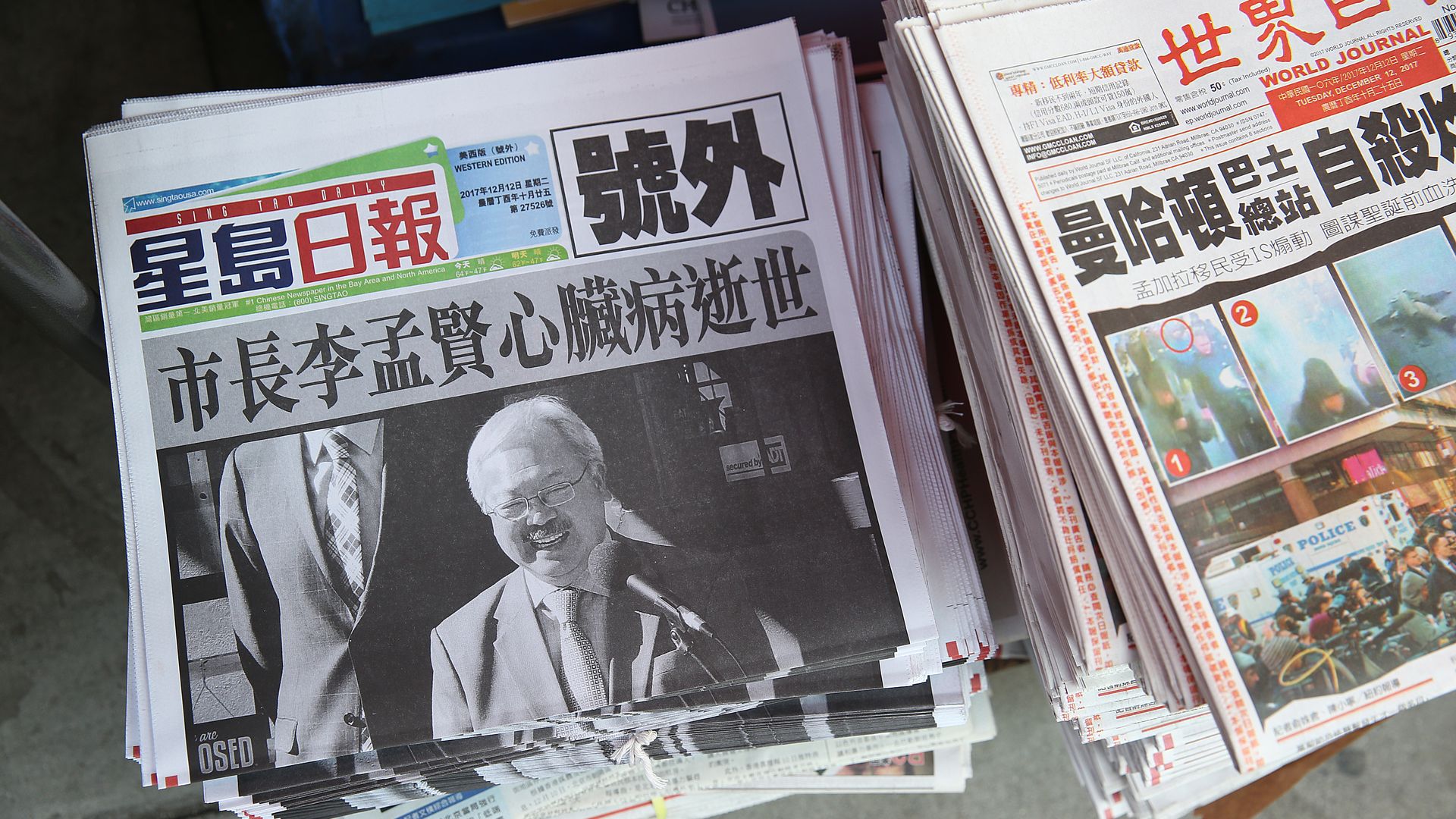Aug 25, 2021 - Politics & Policy
DOJ brands Chinese-owned U.S. newspaper a foreign agent
Add Axios as your preferred source to
see more of our stories on Google.

Sing Tao Daily is seen at a newstand in San Francisco's Chinatown in 2017. Photo: Liz Hafalia/San Francisco Chronicle via Getty Images
